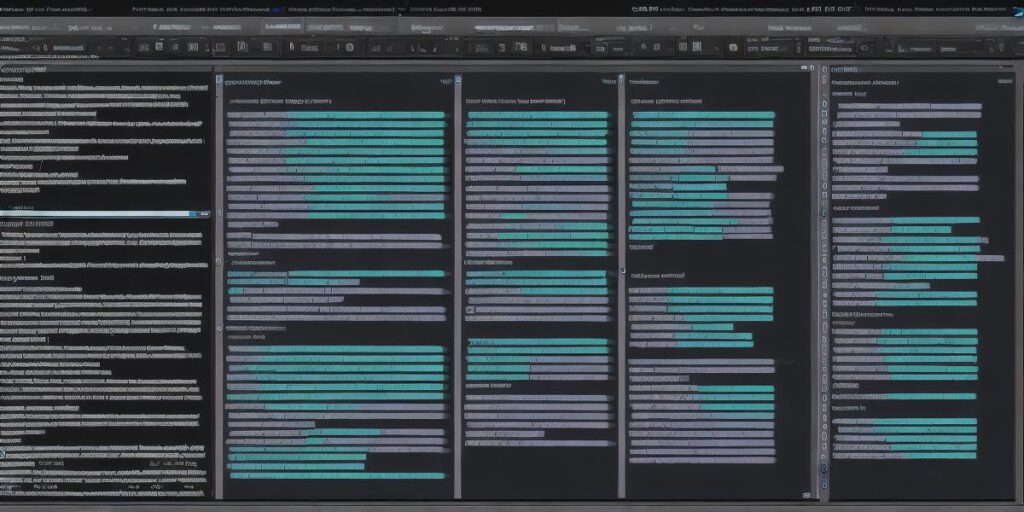Should ‘Software’ Be Capitalized in Writing

The use of capitalization in software has been a topic of debate for many years. Some argue that it is important to always capitalize software, while others believe that it should only be used under certain conditions. In this article, we will explore the arguments for and against capitalizing software and provide you with a clear understanding of when to use each approach.
Arguments for Capitalizing Software
One of the main arguments in favor of capitalizing software is that it provides consistency and clarity in writing. When all software terms are consistently capitalized, it becomes easier for readers to follow along and understand the context of the text. This is particularly important in technical writing where precision and accuracy are paramount. By capitalizing software terms, writers can help ensure that their work is easy to read and understand, which can improve overall engagement with the content.
Another argument for capitalizing software is that it can help with branding and marketing efforts. By capitalizing software terms, companies can differentiate themselves from their competitors and establish a unique identity. This can be particularly important in industries where software is a key component of the product or service. For example, if a company creates a new software program that they want to distinguish from similar products on the market, capitalizing the software term in their marketing materials can help them stand out and build brand recognition.
Finally, some argue that capitalizing software shows respect for intellectual property rights. By using proper capitalization, writers can avoid accidentally infringing on copyrighted software terms and show that they take their work seriously. This is particularly important in academic or professional writing where it is important to credit the original creators of any software used in the text.
Arguments Against Capitalizing Software
One of the main arguments against capitalizing software is that it can create confusion and ambiguity in writing. In some cases, software may be used as a verb or a noun, which can make it difficult for readers to understand the context of the text. Additionally, when software terms are capitalized inconsistently, it can be even more confusing for readers. This is particularly true if the writer uses different capitalization styles depending on the context of the sentence.
Another argument against capitalizing software is that there is no one-size-fits-all approach to capitalization in writing. Different style guides have different rules and guidelines regarding the use of capitalization in software terms. This can create confusion among writers who may not be familiar with the specific style guide being used. For example, some style guides recommend capitalizing only proper nouns, while others suggest capitalizing all software terms regardless of their role in the sentence.
Finally, some argue that capitalizing software is a wasted effort because it does not necessarily make the writing more accurate or effective. In many cases, readers are not even aware of the use of capitalization in software terms and do not use it as a factor when making decisions about a product or service. Therefore, writers should carefully consider whether or not to capitalize software based on the specific needs and goals of their work.
Case Studies and Personal Experiences
To illustrate the points being made, let us look at some real-life examples:
- Capitalizing Software for Consistency
Consider a technical manual that provides instructions on how to install a software program on a computer. In this case, it would be beneficial to capitalize all software terms in order to provide consistency and clarity for the reader. This can help ensure that the reader follows along correctly and avoids making mistakes during the installation process. For example:
Original text: "To install the software, first download the installation file from the website, then double-click on it and follow the prompts."
Revised text: "To install the Software, first Download the Installation File from the Website, then Double-Click on it and Follow the Prompts."
2. Capitalizing Software for Branding and Marketing
Suppose a company is launching a new software product that they want to differentiate from their competitors. In this case, it may make sense to capitalize the software term in order to establish their unique identity and build brand recognition. For example:
Original text: "Our software is designed to be user-friendly and intuitive, unlike our competitors’ software which can be confusing and frustrating."
Revised text: "Our Software is Designed to be User-Friendly and Intuitive, Unlike Our Competitors’ Software which Can be Confusing and Frustrating."
3. Capitalizing Software for Intellectual Property
Consider a writer who is working on a research paper that includes references to copyrighted software terms. In this case, it would be important to capitalize the software terms in order to avoid accidentally infringing on intellectual property rights and show that they take their work seriously. For example:

Original text: "The analysis was conducted using MATLAB, a popular programming language for scientific computing."
Revised text: "The Analysis was Conducted Using MATLAB, a Popular Programming Language for Scientific Computing."

In conclusion, capitalizing software can provide consistency and clarity in writing, help with branding and marketing efforts, and show respect for intellectual property rights. However, writers should carefully consider whether or not to capitalize software based on the specific needs and goals of their work. By using proper capitalization, writers can improve the overall quality and effectiveness of their writing while avoiding confusion and ambiguity in the text.